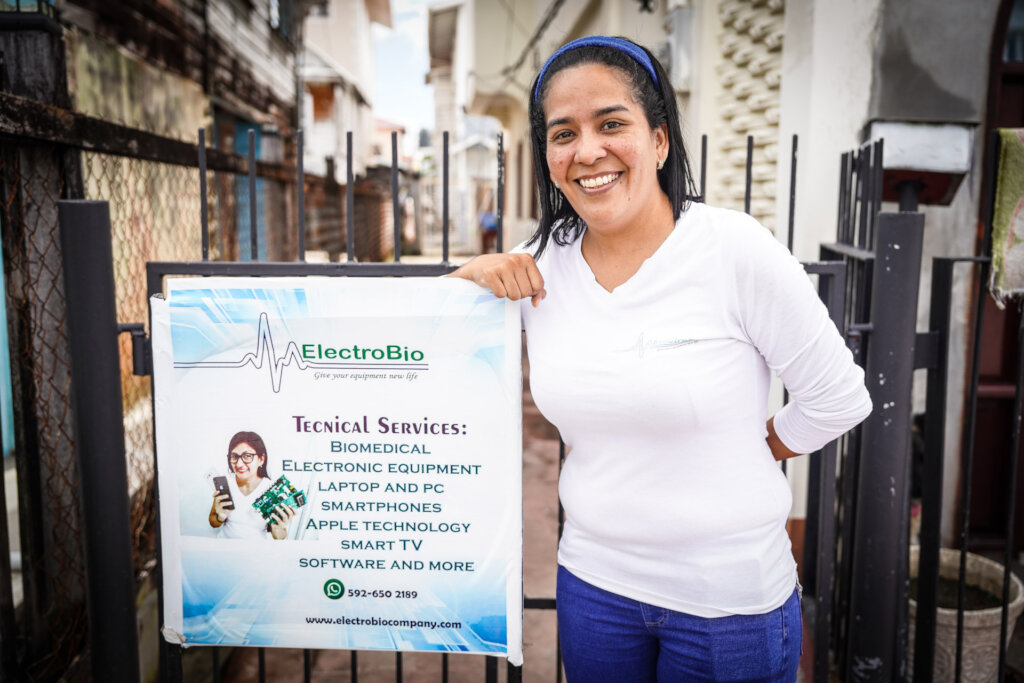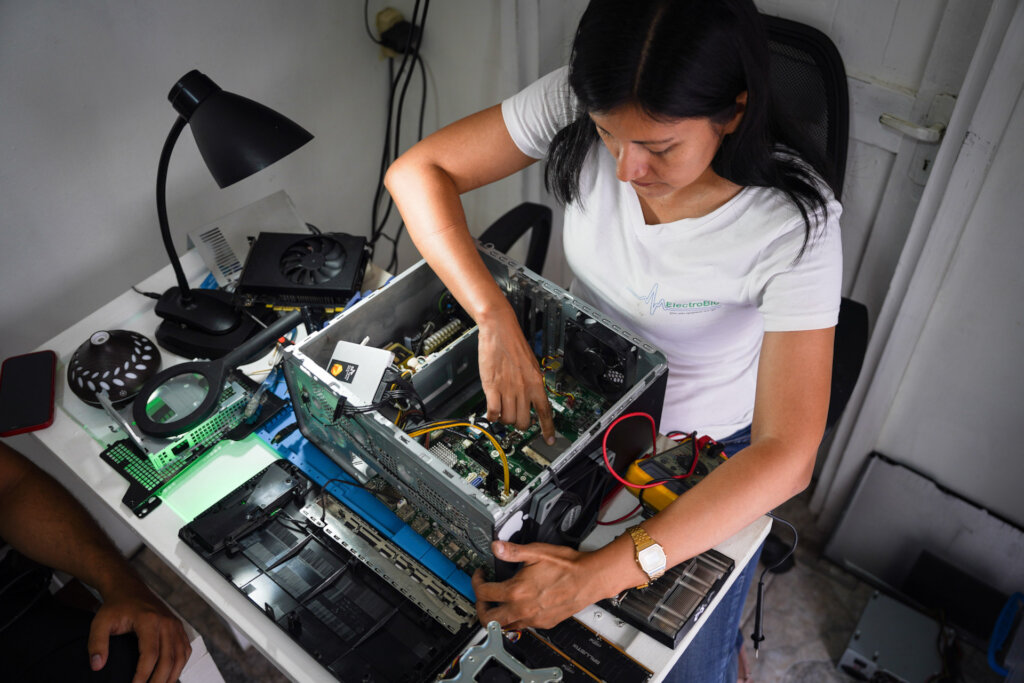By Sonia Agnesod | Planning, Coordination and Compliance
Much of IOM's work with Venezuelans across Latin America and the Caribbean is focused on integration – providing the tools people need to be self-sufficient contributors to their host countries. Entrepreneurship training provides the knowledge to sell products and services safely and legally and gain much-needed financial independence.
Since 2020, the International Organization for Migration (IOM) has provided training courses on business skills, finance, marketing and seed funding in collaboration with Voices GY to help Venezuelan migrants and refugees in Guyana gain the skills to be self-sufficient while at the same time, contributing to their host communities. Thus far, the programme has helped around 150 entrepreneurs gain the skills they need not only to survive, but to thrive.
The programme stimulates entrepreneurial culture and is a successful example of migrants integrating into the local economy and society and serves as an example of the empowerment of agents of change.
“Facilitating access to the formal labour market gives migrants and refugees the opportunity to contribute consistently to the economies of host countries, participate in the growth of the labour force, boost the economy and better integrate in the country,” said IOM project assistant Fiona Stoll.
Mercedes and Nathaly, Venezuelan Engineers in Guyana:
Despite having university degrees in biomedical and computer engineering and years of work experience in their home country, Venezuela, Mercedes and Nathaly found themselves having to accept off-the-books jobs in stores, offices and hospitals when they first arrived in Guyana in 2019.
Four years later, and managing their own company, ElectroBio, the two friends are determined to settle and explore their talents while contributing to the development of Guyana’s biomedical and technology sectors.
Like many Venezuelans who left their country in recent years, Nathaly and Mercedes set their sights on being their own bosses, deciding to combine their efforts to start a small business providing biomedical services to hospitals and private companies, and fixing electronic devices like smartphones, computers and electric bikes.
“Having our own business gives us a much firmer foundation for developing our professional careers in our new country,” said Mercedes. But it was not until they took an entrepreneurship course that they realized they could take their small business to the next level.
“The training opened our eyes and made us see that we could do more and grow more. It has really been fundamental for the business,” said Nathaly as she set up client appointments through a dedicated website.
Credits: This story was written by Gema Cortes, IOM Media and Communications Unit, Office of the Special Envoy for the Regional Response to the Venezuela Situation.
Links:
Project reports on GlobalGiving are posted directly to globalgiving.org by Project Leaders as they are completed, generally every 3-4 months. To protect the integrity of these documents, GlobalGiving does not alter them; therefore you may find some language or formatting issues.
If you donate to this project or have donated to this project, you can receive an email when this project posts a report. You can also subscribe for reports without donating.

